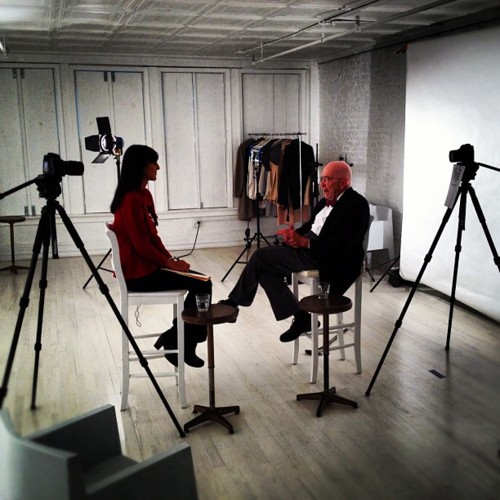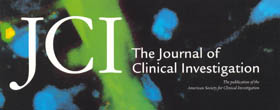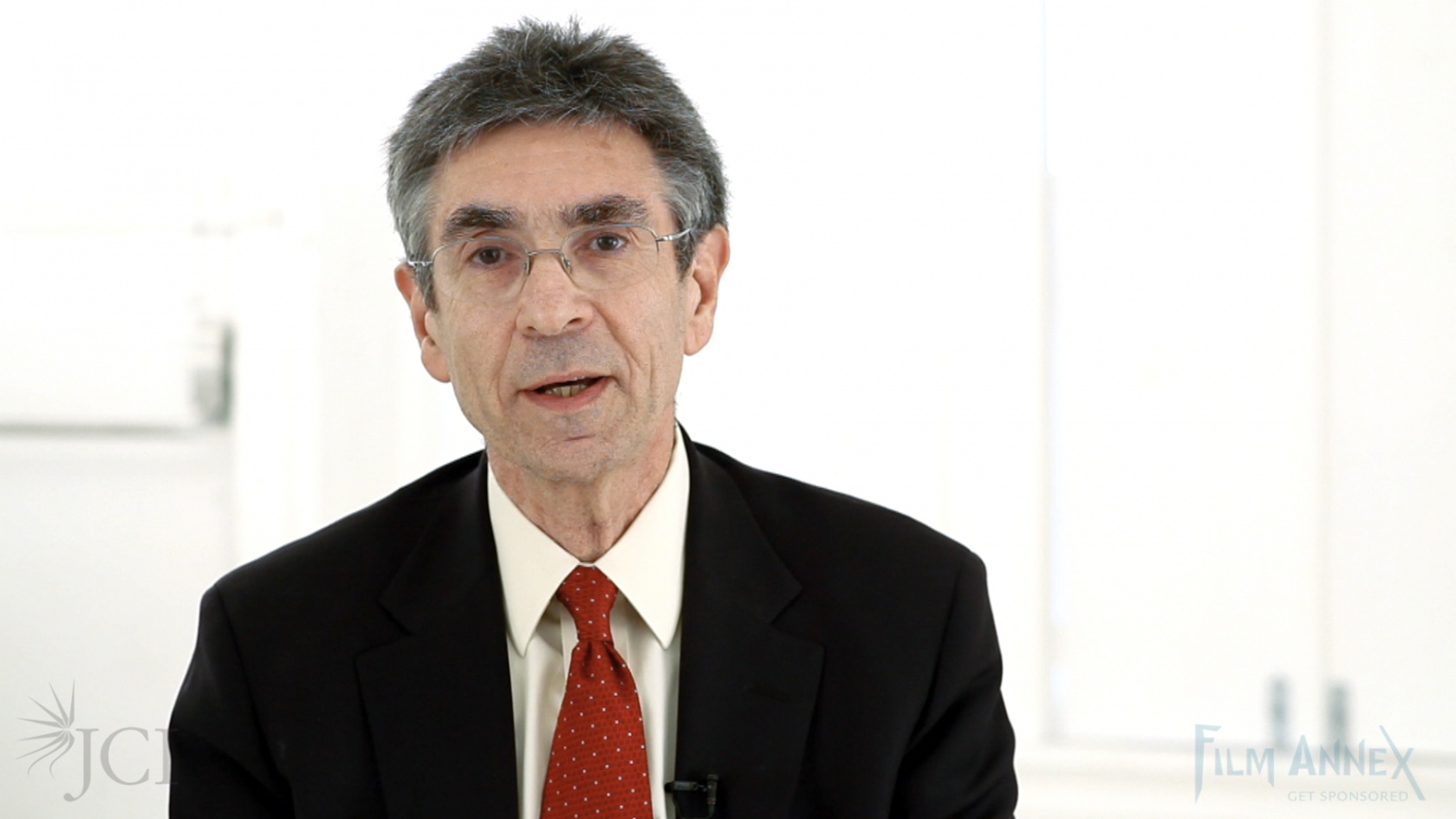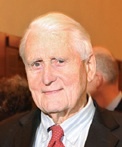NEW YORK, January 2, 2012 - Consulting For Strategic Growth 1, Ltd. (CFSG1), an investor relations, corporate development agency specializing in domestic and international companies new to American financial markets, today continues its tradition of naming a "Stock Pick" from selected CFSG1 clients and announced today its first stock picks for 2013. With anticipation of strong positive growth in the coming year, CFSG1 is pleased to name Neostem (NYSE MKT: NBS) and Medifocus, Inc. (TSX-V: MFS, OTC: MDFZF) as its first stock picks for the New Year.
CSFG1 has represented NeoStem, Inc. in various capacities since 2006 and has seen the Company grow under the leadership of its CEO, Dr. Robin Smith, MD, MBA, from a single focus business to an international biopharmaceutical company with multiple revenue streams. Today, Neostem is a clear leader in the development and manufacture of cell-based therapeutics with continued growth opportunities in the future.
NeoStem Ranked Number 1 Fastest Growing Company in the Tri-State Region on Deloitte's 2012 Technology Fast 500(TM)
 NEW YORK, Nov. 15, 2012 (GLOBE NEWSWIRE) -- NeoStem, Inc. (NYSE MKT: NBS) ("NeoStem" or the "Company"), an emerging market leader in the fast growing cell therapy industry, today announced it ranked number 1 in the Tri-State region and number 7 nationally on Deloitte's 2012 Technology Fast 500(TM), a ranking of the 500 fastest growing technology, media, telecommunications, life sciences and clean technology companies in North America.
NEW YORK, Nov. 15, 2012 (GLOBE NEWSWIRE) -- NeoStem, Inc. (NYSE MKT: NBS) ("NeoStem" or the "Company"), an emerging market leader in the fast growing cell therapy industry, today announced it ranked number 1 in the Tri-State region and number 7 nationally on Deloitte's 2012 Technology Fast 500(TM), a ranking of the 500 fastest growing technology, media, telecommunications, life sciences and clean technology companies in North America.
Dr. Robin L. Smith, NeoStem's Chairman and CEO, said "We are proud to be recognized for this achievement as we build NeoStem into a top tier biopharmaceutical company and thrilled to be honored alongside such fast-growing, successful companies such as Celgene, LinkedIn, and Google. On behalf of the entire NeoStem team, I would like to thank Deloitte & Touche, LLP for their recognition of our efforts."
NeoStem is emerging as a market leader in the fast growing cell therapy industry. The Company's multifaceted business strategy combines a state-of-the-art contract development and manufacturing organization (CDMO) with a medically important cell therapy product development program providing for near- and long-term revenue growth opportunities. We focus on developing cell therapy products around a strong IP portfolio. These products target large markets such as cardiovascular disease, autoimmune disorders and regenerative medicine.
In a challenging economy with risk adverse capital markets, we have fashioned a management team that is both flexible and opportunistic. PCT, acquired in 2011, expands our revenue growth and gives us unique insight into the clinical and commercial cell therapy manufacturing market while we simultaneously develop our own clinical products. This service business and pipeline of proprietary cell therapy products work in concert, giving us a competitive advantage that we believe is unique to the biotechnology and pharmaceutical industries.
NeoStem is focused on organic growth and continuously evaluates strategic opportunities. We look forward to achieving success for our future patients, our PCT clients, employees and shareholders.
About Deloitte's 2012 Technology Fast 500(TM)
Technology Fast 500, conducted by Deloitte & Touche LLP, provides a ranking of the fastest growing technology, media, telecommunications, life sciences and clean technology companies -- both public and private - in North America. Technology Fast 500 award winners are selected based on percentage fiscal year revenue growth from 2007 to 2011.
In order to be eligible for Technology Fast 500 recognition, companies must own proprietary intellectual property or technology that is sold to customers in products that contribute to a majority of the company's operating revenues. Companies must have base-year operating revenues of at least $50,000 USD or CD, and current-year operating revenues of at least $5 million USD or CD. Additionally, companies must be in business for a minimum of five years, and be headquartered within North America.
About NeoStem, Inc.
NeoStem, Inc. continues to develop and build on its core capabilities in cell therapy, capitalizing on the paradigm shift that we see occurring in medicine. In particular, we anticipate that cell therapy will have a significant role in the fight against chronic disease and in lessening the economic burden that these diseases pose to modern society. We are emerging as a technology and market leading company in this fast developing cell therapy industry. Our multi-faceted business strategy combines a state-of-the-art contract development and manufacturing subsidiary, Progenitor Cell Therapy, LLC ("PCT"), with a medically important cell therapy product development program, enabling near and long-term revenue growth opportunities. We believe this expertise and existing research capabilities and collaborations will enable us to achieve our mission of becoming a premier cell therapy company.
Our contract development and manufacturing service business supports the development of proprietary cell therapy products. NeoStem's most clinically advanced therapeutic product candidate, AMR-001, is being developed at Amorcyte, LLC ("Amorcyte"), which we acquired in October 2011. Amorcyte is developing a cell therapy for the treatment of cardiovascular disease and is enrolling patients in a Phase 2 trial to investigate AMR-001's efficacy in preserving heart function after a heart attack. Athelos Corporation ("Athelos"), which is approximately 80%-owned by our subsidiary, PCT, is collaborating with Becton-Dickinson in the early clinical exploration of a T-cell therapy for autoimmune conditions. In addition, pre-clinical assets include our VSEL TM Technology platform as well as our mesenchymal stem cell product candidate for regenerative medicine. Our service business and pipeline of proprietary cell therapy products work in concert, giving us a competitive advantage that we believe is unique to the biotechnology and pharmaceutical industries. Supported by an experienced scientific and business management team and a substantial intellectual property estate, we believe we are well positioned to succeed.
For more information on NeoStem, please visit www.neostem.com .
CFSG1 and/or its principals have represented Medifocus, Inc. in various capacities since 2008, and have witnessed the Company's growth under the leadership of Medifocus's CEO, Augustine Cheung, from a clinical, trial level company with a single application to now possessing an approved therapeutic system. Medifocus is currently generating revenue and rapidly advancing its Phase III trial in its original asset.
Medifocus Inc. Announces Update on the Prolieve(R) Acquisition and the Hiring of the Prolieve(R) Management Team
 COLUMBIA, MD and TORONTO--(Marketwire - Sep 27, 2012) - Medifocus Inc. (OTCQX : MDFZF ) ( PINKSHEETS : MDFZF ) ( TSX VENTURE : MFS ) is pleased to announce the following update on the recently announced purchase of all the Prolieve® business assets from Boston Scientific Corporation (BSX).
COLUMBIA, MD and TORONTO--(Marketwire - Sep 27, 2012) - Medifocus Inc. (OTCQX : MDFZF ) ( PINKSHEETS : MDFZF ) ( TSX VENTURE : MFS ) is pleased to announce the following update on the recently announced purchase of all the Prolieve® business assets from Boston Scientific Corporation (BSX).
Prolieve® is approved by the FDA for the treatment of Benign Prostatic Hyperplasia (BPH). Medifocus has successfully begun the transition from a research and development company to a revenue generating business. Medifocus has already begun selling and shipping Prolieve® from its Columbia, MD facility; thus will be reporting revenue in the current quarter for the first time in its history.
To fully capitalize on the Prolieve® business opportunity, Medifocus has hired key personnel to expedite the transition and future revenue growth. Mr. Kurt B. ONeill, CPA was formerly the Business Development Manager for the Prolieve® system at BSX and was hired by Medifocus as V.P. of Sales and Finance. Mr. Timothy P. Heyer, formerly the Prolieve® Business Manager and Rocky Mountain Mobile Services (RMMS) Manager at BSX, was hired by Medifocus as Director of Sales. Ms. Stacey Kjeldgaard, formerly Manager of the RMMS business unit at BSX was hired by Medifocus as the Administrative Manager for the Prolieve® System. Together they bring over 50 years of experience in the industry.
Prolieve® is a patent protected device that utilizes intra-cavitary catheters to deliver a combination of microwave heating and balloon dilatation of the prostatic urethra which leads to the relief of BPH symptoms. Treatment with Prolieve® is a minimally invasive non-surgical in-office procedure which offers patients clinically documented immediate reduction of BPH symptom scores. Prolieve® is the only microwave device to be randomized to drug therapy during its pivotal trial. The BPH drug market is an $8 billion market and growing. BPH patients can be treated using Prolieve® in urologic offices throughout the United States. In addition, the Prolieve® treatment is also made available to physicians using a nationwide mobile service provider, Rocky Mountain Mobile Services, which was part of the asset purchase.
Prolieve® was originally developed and commercialized by the current Medifocus management, product development, clinical and regulatory teams. The assets acquired by Medifocus include all Prolieve® hardware inventories, Rocky Mountain Mobile Services and its mobile distribution assets, as well as the intellectual property portfolio associated with the Prolieve® technology. The Prolieve® design is based on a platform technology from which other disposable microwave heating catheters for various deep seated anatomical sites can also be developed.
About Medifocus
Medifocus owns a patented microwave focusing technology platform (the Adaptive Phased Array ("APA") technology), which precisely targets and controls microwave energy to cause heating in cancerous tumors anywhere in the body reliably and repeatedly. The ability to target tumors with a precision controlled dose of heat can be used to destroy tumors at higher temperatures, to treat tumors in combination with chemotherapy and/or radiation at moderate temperatures for increased effectiveness and reduced toxicity and to trigger the targeted release of therapeutic drugs and genes at tumor sites at lower temperatures. While the core technology has been licensed from the Massachusetts Institute of Technology, Medifocus has further refined the precision of the microwave focusing and control ability and developed a commercial system dedicated exclusively for the treatment of Breast Cancer. With the acquisition of Prolieve®, Medifocus now owns in addition, a revenue generating commercial BPH heat treatment product generating cash flow to support the development and commercialization of other catheter based or APA based external focused heat systems for targeted thermotherapy of deep seated tumors anywhere in the body. Please visit www.medifocusinc.com for more details.
About Boston Scientific
Boston Scientific is a worldwide developer, manufacturer and marketer of medical devices that are used in a broad range of interventional medical specialties. For more information, please visit: www.bostonscientific.com .
About Consulting for Strategic Growth 1, Ltd.
Consulting For Strategic Growth I, Ltd. ("CFSG1") provides consulting, business advisory, investor relations, public relations and corporate development services to public and private companies. In connection with these services, CFSG1 prepares press releases, corporate profiles, and other publications on behalf of and regarding its clients. Certain statements contained in this press release that are not purely historical are forward-looking statements for purposes of the safe harbor provisions under The Private Securities Litigation Reform Act of 1995. Words such as "believes", "expects", "anticipates", "plans", "estimates", "could" and similar expressions that convey uncertainty of future events or outcomes identify forward-looking statements. Such forward-looking statements involve known and unknown risks, uncertainties and other factors which may cause the actual results, performance or achievements of CFSG1 or its clients to differ materially from those expressed or implied by these forward-looking statements. CFSG1 receives cash and/or restricted stock/warrants to purchase shares in the future.
 “bug” of doing scientific research from home because the environment growing up was anti-intellectual. He suspects that going to college was an act of rebellion. Greengard used the G.I. Bill in order to go to college because he served in the military during World War II. He says he studied mathematics and physics. He planned to go to graduate school in order to work in theoretical physics. He states that he changed his mind after the atomic bombs were dropped on Hiroshima and Nagasaki.
“bug” of doing scientific research from home because the environment growing up was anti-intellectual. He suspects that going to college was an act of rebellion. Greengard used the G.I. Bill in order to go to college because he served in the military during World War II. He says he studied mathematics and physics. He planned to go to graduate school in order to work in theoretical physics. He states that he changed his mind after the atomic bombs were dropped on Hiroshima and Nagasaki. Conversations with Giants in Medicine,
Conversations with Giants in Medicine,  Paul Greengard,
Paul Greengard,  biochemistry,
biochemistry,  biophysics,
biophysics,  medical,
medical,  medical physics,
medical physics,  neuroscience,
neuroscience,  pharmaceutics |
pharmaceutics |  Print Article
Print Article  Email Article Posted on
Email Article Posted on  Monday, March 4, 2013 at 4:10PM
Monday, March 4, 2013 at 4:10PM  Permalink in
Permalink in  Education,
Education,  Specialty Pharma
Specialty Pharma 







